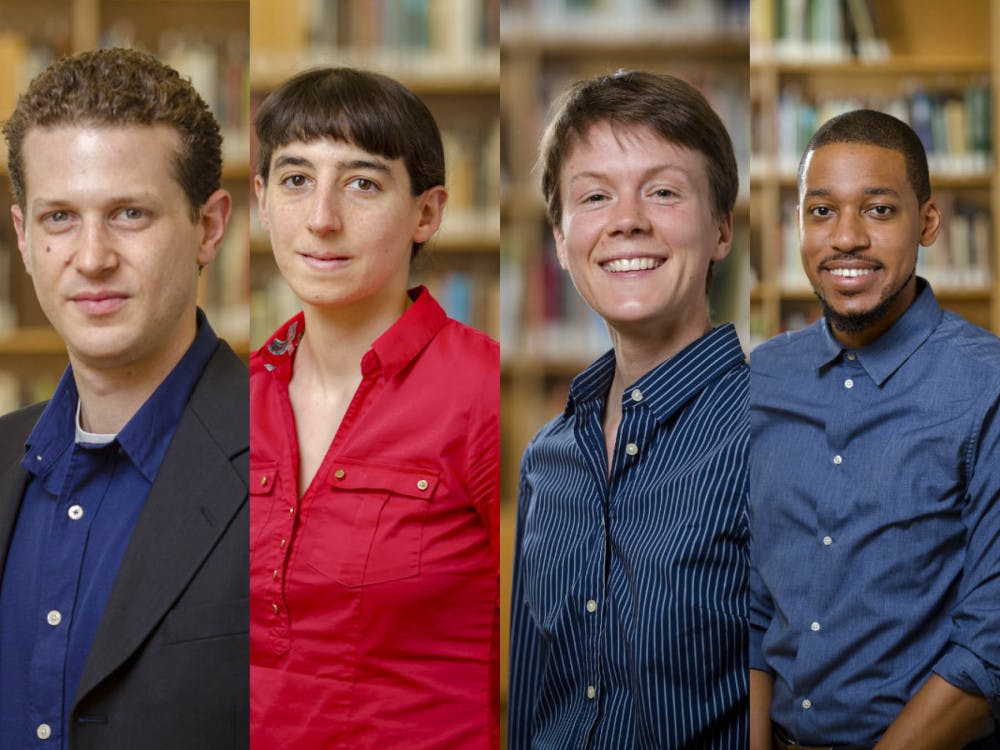Four of the University’s assistant professors have received the Sloan Foundation fellowship to further their research in STEM or related fields.
Fellowship recipients, who must hold a PhD equivalent, each received $70,000 to be used on their research in a two year period. The fellowship is one of “the most prestigious honors for early career researchers in STEM fields,” wrote Jill Pipher, vice president of research, in an email to The Herald.
Among the 126 recipients of the fellowship throughout the nation, the University is represented by Managing Assistant Professor of Mathematics Kathryn Mann, Assistant Professor of Biostatistics Lorin Crawford, Assistant Professor in the Department of Cognitive, Linguistic and Psychological Science and the Carney Institute for Brain Science Amitai Shenhav and Assistant Professor of Chemistry Brenda Rubenstein ’07, Pipher wrote.
Though initially drawn toward science in high school, Mann later became excited by math due to its creative nature. She considers the study of math a “thought experiment” that allows students to invent their own parameters, Mann said, adding that she also appreciates the field’s highly collaborative process with “an international community.” With funds provided by the Sloan Fellowship, Mann hopes to start a workshop with other experts to write “popular math” so that it becomes more accessible to everyone. Mann also said she hopes to continue to engage with graduate students, who have new visions and ideas.
Crawford focuses his research on genetic interactions and shape statistics. He was recognized by the Sloan Foundation for two projects, which he works on with separate interdisciplinary research teams. In the first, Crawford uses machine learning to study how interactions among genes and pathways give rise to traits and phenotypes such as type I diabetes and therapeutic resistance in cancer treatment. His second research project explores the human body on a molecular level through shape. Crawford encourages students who plan to pursue a career in scientific research to work hard, generate a vision and keep updating that vision. “The world is quickly growing and changing …look five to 10 years down the line … and try to position yourself at the forefront” of the field you love, he added.
Meanwhile, Shenhav studies “motivational obstacles” to engaging in “cognitively demanding tasks.” Shenhav hopes to use the fellowship funds to better delineate “the cost of cognitive effort” in the process of decision-making. He described the Sloan Fellowship as “exciting and humbling” and encourages students to “get involved in research in some capacity as early as possible” and “to generate questions about the world.”
Rubenstein sees scientific research as a way to “push changes at all levels.” Once an undergraduate at the University, Rubenstein attributed some of her strengths as a researcher to the open curriculum. Now celebrated by the Sloan Fellowship for her work in quantum mechanics, biophysics and alternative computing, she stressed the importance of perserverance. “Science is always an uphill battle … you still have to keep climbing.”





